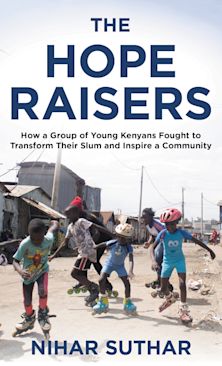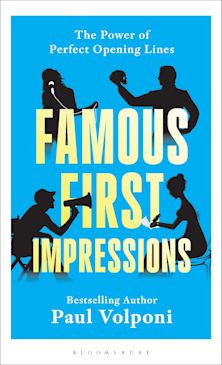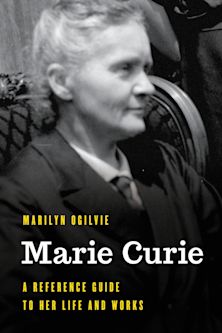- Home
- CHILDREN'S
- Young Adult
- Non-Fiction
- A Loved One with Dementia
This product is usually dispatched within 3 days
- Delivery and returns info
-
Free CA delivery on orders $40 or over
You must sign in to add this item to your wishlist. Please sign in or create an account
Description
A Loved One with Dementia: Insights and Tips for Teenagers offers insight into what dementia is and how you can interact positively with and assist someone who has dementia. Featuring personal anecdotes from young people who have gone through this themselves, and with thoughtful advice from professionals, it is a much-needed guide for those who want to help someone they care about.
You will learn
The personal impact of a devastating diseaseSuggestions for activities throughout the different stages of dementiaWays to understand and deal with feelings of helplessness, anger, grief, and frustration that often affect those who love someone with dementia
With helpful tips and a list of resources, this book provides practical advice and supportive suggestions for how you can understand and grow from the difficulties you and your family may face. It shows how you can not only help someone with dementia, but also find understanding and joy in loving them.
Table of Contents
PART I: WHAT IS DEMENTIA
1: What Is Dementia?
2: What Does Dementia Look Like?
PART II: EXPECTATIONS AND CHALLENGES
3: What to Expect
4: What You Can Do to Help Someone with Dementia
5: How Does Dementia Affect Family and Friends?
6: Activities to Share with Someone with Dementia
PART III: WHAT’S NEXT?
7: Facing Death and the Rituals of Death and Mourning
8: How You Can Help Yourself during Difficult Times
Notes
Resources
Bibliography
Index
About the Author
Product details
| Published | Nov 23 2020 |
|---|---|
| Format | Paperback |
| Edition | 1st |
| Extent | 150 |
| ISBN | 9781538136980 |
| Imprint | Rowman & Littlefield Publishers |
| Illustrations | 9 colour illustrations; 35 textboxes |
| Dimensions | 218 x 142 mm |
| Series | Empowering You |
| Publisher | Bloomsbury Publishing |
About the contributors
Reviews
-
With the U.S. population growing older and people living longer, Rawitt contends that teens are increasingly likely to know and need to assist someone with dementia. Part of the Empowering You series, this comprehensive manual offers support in understanding this neurocognitive disorder. The book begins with an introduction to what dementia is (identifying Alzheimer’s as a kind of dementia and not an interchangeable term) and a thorough look at the stages of dementia and the challenges associated with each one. As the author discusses ways to care for individuals with dementia, ways dementia can affect family and friends, and activities to share with someone with dementia, she maintains a teen focus by addressing such concerns as family embarrassment, guilt, and financial burdens, and by providing tips, such as talking slower and in a lower pitch to ease communication. The last chapters focus on facing death (including hospice care and what happens after death) and the importance of self-care. An extensive list of supporting resources rounds out this helpful guide.
Booklist
-
Jean Rawitt is a wise and kind guide to this difficult subject and this book will benefit both teenagers and their loved ones who are increasingly likely to develop dementia. In fact, I have already recommended this book to young people who are dealing with elderly relatives with dementia.
Charles Mobbs, Ph.D., professor of Neuroscience and Geriatrics, Mount Sinai School of Medicine
-
In A Loved One with Dementia: Insights and Tips for Teenager, Jean Rawitt presents an intimate, caring, and candid conversation demystifying dementia. By understanding dementia and its phases, teens will learn how to channel their youthful energy into “being there” – even during painful or embarrassing situations -- with a grandparent or other family member who suffers from progressive loss of cognitive functioning. With utmost sensitivity and compassion, Rawitt offers an array of resources that will help YOU as you help your loved one cope with dementia.
Bette Kerr, EdD, Professor Emerita, Hostos Community College, City University of New York (CUNY)
-
While Loving Someone with Dementia is targeted to teens, it is a tremendously valuable book for anyone who knows someone with cognitive decline. A clear and consolidated guide to understanding dementia on a practical level, it provides a wealth of specific things to do and think about during every stage of a complicated disease. This book should be in the hands of every family member and health aide who helps with the care of someone with dementia.
Adi Loebl, MD, Adult and Geriatric Psychiatrist, Chief Medical Officer, Ackerman Institute for the Family
-
Jean Rawitt has done a masterful job of describing the dementia experience and its impact on the individual, families, and society. This book provides up-to-date information on the prevalence and impact of dementia and provides practical suggestions on how teenagers can engage and communicate effectively with individuals suffering with dementia throughout the illness experience from mild to advanced stages of the disease. It provides sound advice about the importance of self-care activities that are important to employ given the toll that dementia can exact on loved ones. This book is must reading for teenagers who have family members that live with dementia as well as those interested in learning more about the dementia experience.
Cary Reid, Irving Sherwood Wright Associate Professor of Medicine, Weill Cornell Medicine



































